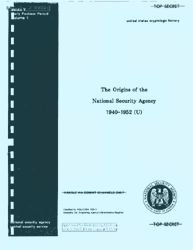Reactions to Indigenous archaeology were initially mixed. Some expressed dismay that federal reburial and repatriation legislation, plus the inclusion of Aboriginal people and values in archaeology, would be the end of some types of archaeological investigations and encourage hyper-relativism. There were also concerns about the credibility of Indigenous people doing archaeology, especially where their research could be used in CRM or land claims.
Today, however, Indigenous archaeology has become widely recognized worldwide and part of the vocabulary of archaeology. One indicator of its recognition is its appearance as a topic in introductory archaeology textbooks. Students are growing up in a world where Indigenous archaeology is part of the archaeological landscape that they encounter, no different in some respects from other aspects of archaeological theory and practice. At the same time, mainstream archaeology’s reaction to Indigenous archaeology is similar to its reaction to feminist archaeology. There are striking parallels between the two in terms of their developmental history, the critiques they offered, the body of new methods and theory that each developed, and their persistent marginal status within the discipline, rather than as approaches that are broadly transformative.
Throughout the world, Indigenous people’s increasingly sophisticated critique of archaeological practice, coupled with the development of Indigenous archaeology, has contributed significantly to the development of new ethical standards and codes by professional organizations, including the Association of Southern African Professional Archaeologists, the Australian Archaeological Association, and the Canadian Archaeological Association, the Society for American Archaeology, and the World Archaeological Congress. The World Archaeological Congress’ code of ethics is framed around the obligations archaeologists have to
Indigenous peoples; WAC also actively promotes and financially supports Indigenous participation in all of its meetings. Indigenous archaeology has a relatively limited presence within the Society for American Archaeology. However, the society does support Aboriginal archaeologists through the Arthur C. Parker scholarship for Native Americans and Native Hawai-ians, and has published the working together section of the SAA Archaeological Record. Other organizations have provided important venues for exploring Indigenous issues in archaeology, including the Chacmool Archaeology conference, which hosted Indigenous Peoples and Archaeology in 1999, and Decolonizing Archaeology in 2006.
Finally, Indigenous concerns regarding education have contributed to the creation of Native Studies and Indigenous Archaeology programs in universities and other academic setting. There are also community-based initiatives, a growing number of which offer credentials and training in archaeology.




 World History
World History









